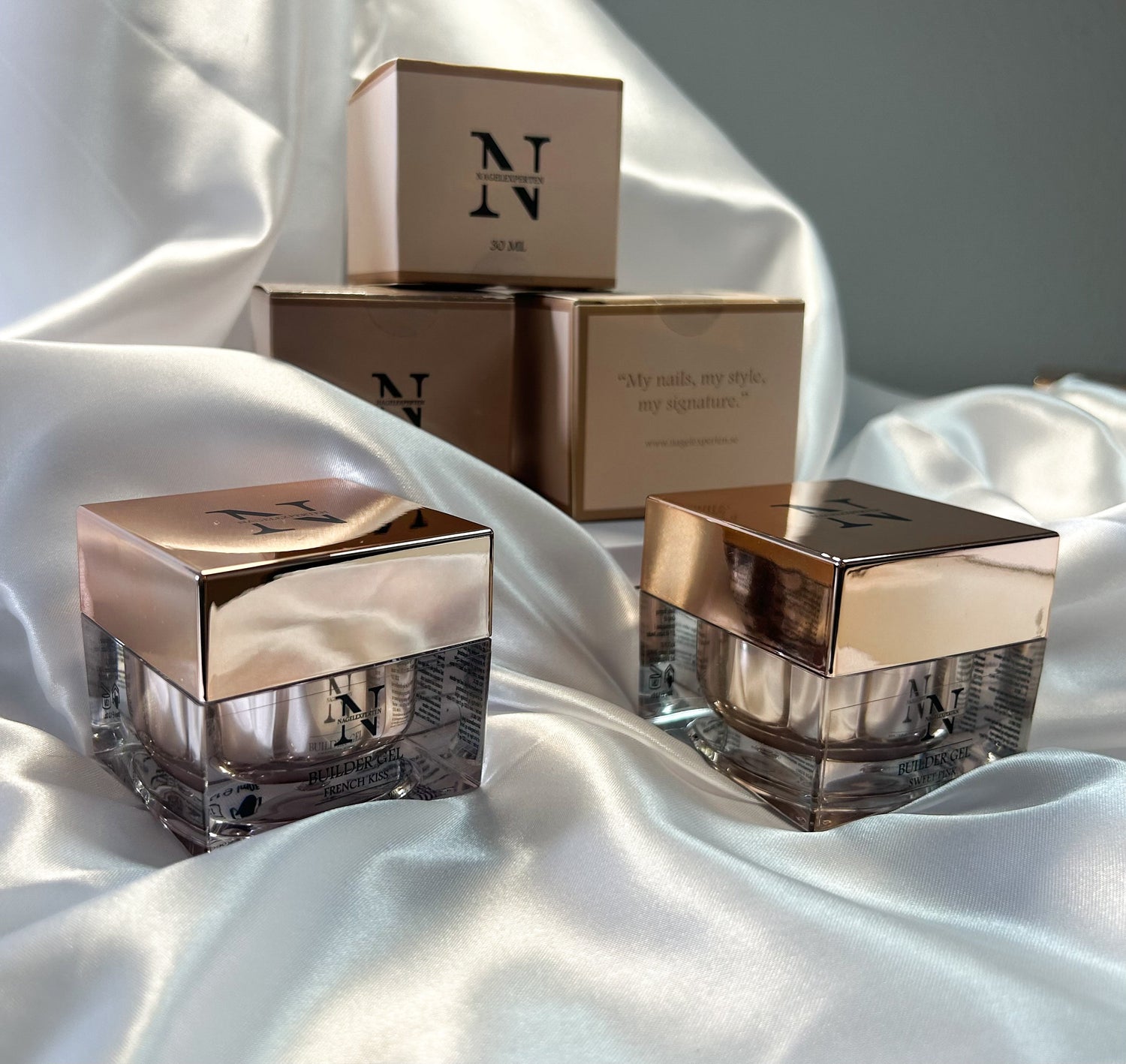How to protect your health in the nail salon – Reduce inhalation of dust and chemicals
Protect your health in the nail salon: How to reduce inhalation of dust and fumes
Working as a nail technician means daily exposure to dust and fumes from filing and chemical products. Inhaling these particles in excessive amounts can negatively affect your health. Here we go over why protective measures are important and how you can minimize the risk in your salon.
The importance of minimizing dust inhalation
Filing, especially with an electric file, generates large amounts of dust that easily ends up in the salon worker's breathing zone. These dust particles can be harmful and cause respiratory irritation, especially in people with asthma, allergies or other respiratory problems.
Using face masks for better air quality
Disposable face masks are an effective way to minimize dust inhalation, but they should never replace good ventilation. A high-quality face mask that fits tightly against the face can block the small particles that try to penetrate. Make sure that:
-
Choose a mask that is designed specifically to filter dust.
-
Replace the mask regularly according to the manufacturer's recommendations.
-
Avoid surgical masks, as these do not provide adequate protection against salon dust.
The impact of electric nail files on dust dispersion
Electric files produce significantly less dust particles than hand files. These small particles are lighter and can float in the air for hours, making them easier to inhale and get deeper into the lungs.
Comparison between hand filing and electric filing
-
Hand filing : Creates larger particles that fall to table surfaces and floors more quickly.
-
Electric filing : Produces much finer particles that stay in the air longer and pose a greater risk of inhalation.
How to reduce dust in the salon
It is important to maintain a clean work environment and take steps to control both visible and invisible dust. Follow these guidelines for a safer work environment:
1. Use dust extraction and ventilation
Install one good extractor that sucks up dust directly at the source to minimize the spread in the air. Look for an extractor that is approved by the Swedish Work Environment Authority to be sure that the extractor meets all requirements. Small table extractors only suck up the larger dust particles that are visible to the naked eye, so you need a strong extractor with filters that filter out the light (and most dangerous) dust that circulates in the air. Larger and more powerful extractors may cost a fortune, but they are absolutely necessary to preserve the health of you and your customers.
2. Use nail oil
Using nail oils in conjunction with filing can significantly reduce the amount of dust in the air by binding dust particles before they are dispersed. However, be aware that cuticle oil can cause nails to loosen prematurely if applied in conjunction with nail prep.
3. Clean the salon regularly
Good cleaning reduces dust buildup:
-
Wipe surfaces and tools frequently.
-
Use an air purifier to filter out small particles.
-
Make sure that garbage and dust are disposed of safely.
4. Use nitrile gloves
As a nail therapist, it's important to use the right type of gloves to protect both you and your clients from nail dust, chemicals, allergens, and bacteria. Here are the best options:
1. Nitrile Gloves (Best Choice) 🏆
✔ Chemical resistant – Withstands contact with acrylic, gel, monomer and other nail products.
✔ Hypoallergenic – Does not contain latex, which reduces the risk of allergic reactions.
✔ Strong and durable – Resistant to punctures and tearing.
✔ Good fit – Easier when working with small details.
💡 Tip: Use black or dark-colored nitrile gloves to make it easier to see if they are damaged or perforated.
2. Vinyl Gloves (Budget-Friendly Option) 💰
✔ Latex-free – Good for allergy sufferers.
✔ Cheaper than nitrile .
❌ Disadvantages: Less durable and offers less protection against harsh chemicals. Only recommended for lighter work like manicures without harsh chemicals.
3. Latex Gloves (Use with caution) ⚠️
✔ Flexible and comfortable – Good fit.
❌ Contains latex – May cause allergic reactions in both the nail therapist and clients.
❌ Not as chemical resistant as nitrile gloves.
Which gloves should you avoid?
❌ Plastic gloves – Too thin and provide no protection against chemicals.
❌ Powdered gloves – Can irritate the skin and negatively affect nail products.
Conclusion
Working in a nail salon shouldn't be a health risk. By using better extraction, ventilation systems, and face masks, you can protect both yourself and your clients from potentially harmful particles. A clean and safe work environment also makes for a better experience for everyone!

